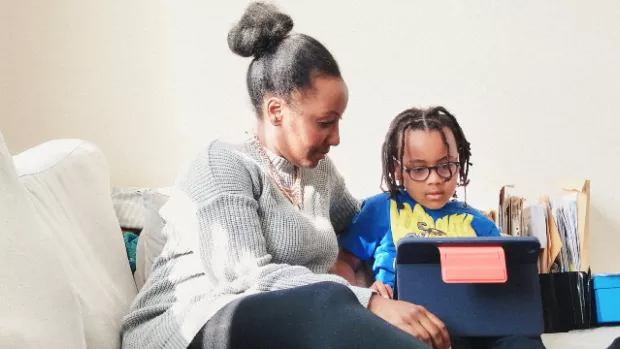
What role do MS labels play?
MS Frontiers is the UK’s biggest MS research conference. At each conference, we hold a debate on a hot topic in MS research. Our Assistant Director of Research, Dr Emma Gray, tells us about this year’s topic.
At our upcoming MS research conference, we’ll be exploring the role of the MS labels, like relapsing remitting MS, primary progressive MS and secondary progressive MS.
The debate will have two teams. One team will argue we should stop using the labels. And the other team will argue we should keep using them. Each team has a neurologist and someone living with MS. And the audience can use their phones to vote on which team they think was most convincing.
Watch the debate live on YouTube at 5pm on Thursday 7 July
Why are we talking about MS labels?
These labels have been around for a long time. And there lots of advantages to using them.
They’ve been incredibly helpful for people living with MS as well as researchers, clinicians, regulators and many others. They’ve helped with designing safe and robust clinical trials, and with licensing and prescribing life-changing treatments. And labels can make it easier to talk about and understand a very complex condition like MS.
But the line between relapsing and progressive MS can also be blurry. You can’t always put people neatly into one category or another.
In MS, you might have inflammation which is usually seen as relapses or new lesions on an MRI scan. And you might have damage to your nerves which causes progression. As we’ve learnt more about this biology of MS, it’s become clear that these two things often happen at the same time, even very early in someone’s MS.
So sometimes people with MS might be given a label that doesn’t fully capture what’s happening in their body. And treatments are licensed for people with specific labels, so it might mean some people can’t access a treatment that could help them. So there are disadvantages too.
Why do we need a debate?
Discussing difficult, complicated questions is a really important part of the scientific process. Looking at all sides of a puzzle is what moves research forward, whatever the answer.
Having a conference debate doesn’t mean things are going to change. But we want everyone with MS to have access to the most effective treatments available. And if changing or reducing our use of these labels could help us get there, it’s vital we explore the possibility from different perspectives.
So let’s see what the debate consensus is!




